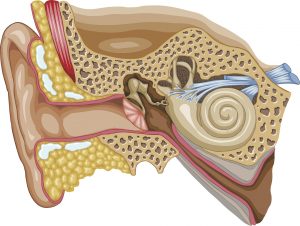Clinicians who see patients with symptoms and signs of Meniere’s disease now have new guidance to improve diagnosis and treatment of the disease. In April 2020, the American Academy of Otolaryngology–Head and Neck Surgery (AAO-HNS) published “Clinical Practice Guideline: Ménière’s Disease,” which offers all providers who manage patients with this disease 16 key action statements covering all areas of diagnosis and management (https://journals.sagepub.com/doi/pdf/10.1177/0194599820909438). The update is based on the most current best evidence culled over the past 20 years since the previous AAO-HNS consensus statement on Ménière’s disease was published in 1995 (Otolaryngol Head Neck Surg. 1995;113:181-185).
Among the key actionable areas for diagnosis are the importance of obtaining and performing a comprehensive history and physical exam along with the judicious use of imaging and testing, according to lead author of the guideline Gregory J. Basura, MD, PhD, assistant professor in the department of otolaryngology/head and neck surgery, University of Michigan. For treatment, he said the guideline outlines the best evidence for acute and long-term medical and surgical treatment strategies, including vestibular therapy and audiometric rehabilitation. Providers are encouraged to use an algorithm included in the guideline as a quick reference guide to support implementation of the key actionable areas.
In addition, Dr. Basura said the guideline updates the current research needed to improve the care of patients with this disease and improve future clinical practice guidelines.
Along with otolaryngologists, the guideline is geared toward all healthcare providers in any setting who may encounter a person suspected of having Ménière’s disease, including providers in emergency medicine, primary care, neurology, audiology, and physical/vestibular therapy. Since Ménière’s disease largely affects older people, the target patient for the guideline is at least 18 years of age. Data show that <3% of cases occur in people younger than 18 and that the prevalence is highest in persons between 40 and 60 years.
Given that a major goal of treating Ménière’s disease is preventing or reducing the frequency or severity of vertigo, the guideline also clarifies what vertigo is, saying it is “the sensation of spinning.” Spinning vertigo should be a symptom at some point in Ménière’s disease presentation.
The key take-home message is the need to improve accurate diagnosis, use appropriate treatments to improve acute and chronic symptom control, and reduce the use of inappropriate medications, procedures, or tests, said Dr. Basura. In addition, he underscored the need to reduce adverse events related to undiagnosed and untreated Ménière’s disease and to increase shared decision making between provider and patient to maximize the patient’s quality of life.
